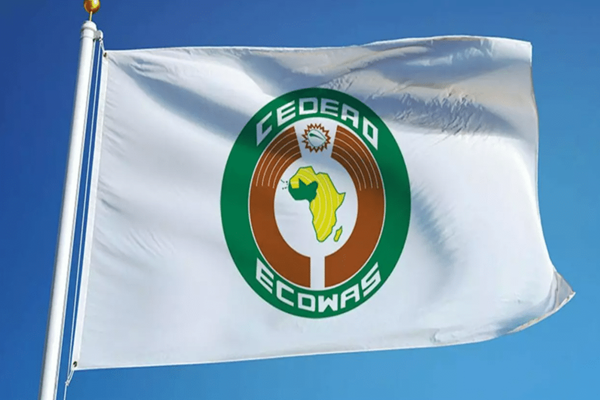
The potential breakup of the Economic Community of West African States (ECOWAS) is raising serious concerns about the future of food security in West Africa. Experts warn that the fragmentation of this vital regional bloc could lead to a sharp increase in food prices, exacerbating the already dire hunger crisis affecting millions of people across the region.
ECOWAS, founded in 1975, has played a critical role in fostering economic cooperation, political stability, and trade integration across the 15-member states of West Africa. However, recent political tensions and economic challenges have raised the possibility of fragmentation or a weakening of the regional organization. The potential dissolution or fracturing of ECOWAS could undermine its ability to facilitate trade, implement policies, and support regional infrastructure, which are all crucial for food distribution and agricultural development.
West Africa has long faced challenges related to food security, with millions of people struggling to access affordable and nutritious food. Climate change, conflict, and economic instability have all contributed to rising levels of hunger. The situation has only worsened in recent years, with the United Nations reporting that nearly 43 million people in the region were food insecure in 2023. As food prices climb and supply chains are disrupted, the effects of this crisis are being felt acutely by the most vulnerable populations, including children, women, and rural communities.
One of the main concerns about the potential fragmentation of ECOWAS is the impact it could have on regional trade. ECOWAS has established key mechanisms such as the West African Economic and Monetary Union (UEMOA) and the ECOWAS Trade Liberalization Scheme (ETLS) to promote free trade, reduce tariffs, and facilitate the movement of goods across member states. These initiatives have allowed West African countries to trade essential goods, including foodstuffs, with greater ease and affordability.
A breakup of ECOWAS could lead to the imposition of new trade barriers, tariffs, and restrictions between countries, effectively raising the cost of importing and exporting food. The region is heavily reliant on cross-border trade to meet food demand, with agricultural products such as rice, maize, and millet frequently crossing borders between countries. If trade becomes more difficult or expensive, food prices are expected to increase, putting even more pressure on already strained households.
The disruption in trade would also affect food distribution networks, making it harder for countries to access food supplies from neighboring states. In some cases, it could lead to shortages of key staples, causing price hikes and making food even more inaccessible to the poorest populations.
West Africa’s smallholder farmers, who represent the backbone of the region’s agricultural sector, are already struggling with various challenges, including climate change, inadequate infrastructure, and limited access to markets. These farmers often rely on cross-border trade to sell their crops and generate income. A weakened ECOWAS could make it more difficult for them to access regional markets, limiting their opportunities for trade and increasing the risk of crop losses due to seasonal variability.
Without the support and protections that come from being part of a larger regional economic group, smallholder farmers may face even greater challenges in securing fair prices for their products. Furthermore, rising food prices could result in lower demand for locally produced goods, leaving farmers with unsold crops and further deepening the cycle of poverty.
The potential breakdown of ECOWAS’s trade framework is likely to worsen the ongoing hunger crisis in West Africa. As food becomes more expensive and less accessible, vulnerable populations will struggle to meet their basic nutritional needs. The impact on public health is likely to be severe, particularly for children, who are most vulnerable to malnutrition and stunting due to food insecurity.
Regional organizations like ECOWAS have played a vital role in coordinating humanitarian efforts and providing relief to countries facing hunger crises. If ECOWAS fractures, the ability to mobilize regional responses to food insecurity will be compromised, leaving individual nations to tackle hunger on their own. This could delay or hinder the implementation of essential aid programs and exacerbate the suffering of millions of people.
While the outlook for food security in the event of an ECOWAS breakup is concerning, experts argue that there are steps that can be taken to mitigate the impact of such a scenario. Strengthening local agricultural production through investment in technology, irrigation, and climate-resilient farming practices could help reduce the region’s dependency on imports and bolster food self-sufficiency.
Additionally, regional cooperation between African countries, even outside the ECOWAS framework, will be critical in addressing food security challenges. The African Union (AU) and other regional organizations may play a key role in coordinating efforts to ensure continued access to food and promote trade among African nations. It will be important to prioritize regional economic integration, focusing on the movement of food, agricultural products, and essential goods across borders to avoid further price hikes.
International organizations such as the World Food Programme (WFP) and the United Nations are also key players in addressing food insecurity in West Africa. Increased international support, both in terms of financial aid and technical assistance, will be necessary to help stabilize food systems in the region.
The potential breakup of ECOWAS is a troubling development for the future of food security in West Africa. With the region already grappling with high levels of hunger and food insecurity, any disruption to trade, agriculture, or humanitarian support could have devastating consequences. As political tensions continue to unfold, it is crucial for West African governments, regional organizations, and the international community to come together and ensure that the region’s food systems remain resilient, accessible, and sustainable for all. Only through cooperation and strategic planning can West Africa hope to avoid further escalation of the hunger crisis and achieve long-term food security for its people.

